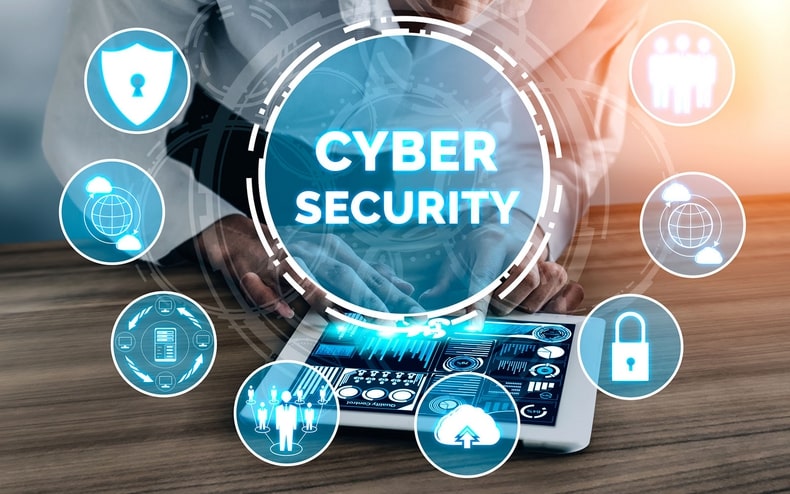HOW TO BECOME AN EXPERT IN CYBERSECURITY?
The internet and mobile technology are currently ruling the globe. It is nearly hard to do any task without their assistance. However, technical breakthroughs are seldom without drawbacks, such as security threats. As the number and variety of cybersecurity threats are growing every day, the viability of a profession in cybersecurity is growing as well.
The capability of protecting computers, servers, electronic systems, networks, and data from hostile disturbance is known as cybersecurity. It’s also known as electronic information security or information technology security. A cybersecurity expert, also known as a cyber intelligence officer, is in high demand in the job market all around the world. Anyone who is proficient with computers could potentially be a good match for this position.
Roles and Responsibilities of Cybersecurity Experts
Cybersecurity engineers or experts are individuals who ensure the design and implementation of highly secure network solutions, according to those interested in a career in cybersecurity. These network solutions should offer effective defense against cyber-attacks, hackers, and a variety of other persistent threats.
A cybersecurity expert would also be responsible for testing and monitoring the systems to ensure that they operate efficiently and with minimal downtime. Taking on responsibilities like data security engineer, web security engineer, or IT security engineer could be a part of the cybersecurity profession. The principal task in each of these roles, however, would be the same.
The primary duties and responsibilities that a cybersecurity job might include are-
1. Assessing a company’s security needs and setting best practices and standards
2. All security initiatives for securing organizational data, networks, and systems must be designed, implemented, maintained, and upgraded.
3. All security breaches in the network or linked systems must be dealt with quickly and effectively.
4. Penetration testing should be done on a regular basis.
5. Vulnerabilities should be tested and scanned in the network and system.
6. Resolve network and security issues, as well as incidents related to them.
7. Participate actively in the change management process.
Career Prospects for Cyber Security Experts
Cybersecurity experts are in high demand in a range of industries, including the public and private sectors, huge multinational institutions, and smaller independent firms or charities. As a cybersecurity expert, you might work in a range of businesses, as this is a constantly growing field.
Many cybersecurity experts eventually go into business for themselves or act as consultants. In order to gain a sufficient quantity of relevant experience, an inexperienced cybersecurity specialist should begin by working in an entry-level IT function in a sector such as networking and then move on to work safeguarding a varied variety of IT infrastructures. This will likely lead to well-paid executive positions in the future, and it will improve your capacity to work with large corporate clients.
Skills and Qualifications Required for a Career in Cyber Security
The following qualifications are required of cybersecurity experts in general-
1. A bachelor’s degree in IT systems engineering, computer science, or a related discipline is required.
2. At least two years of experience in cybersecurity roles such as forensics, SOC, or incident discovery and response is required.
3. C++, Python, Java, Go, Ruby, Node, and PowerShell are examples of languages and tools.
4. Control over firewalls and other forms of endpoint security functionality, operations, and maintenance.
5. Knowledge of current cybersecurity trends and techniques.
6. The capacity to focus on specific security threats in-depth, as well as a demonstration of good problem-solving abilities.
Also Read: Essential Cyber Security Tips
Becoming a CyberSecurity Expert
Although cybersecurity is becoming a popular topic for IT graduates, there is still a strong demand for cybersecurity experts around the world. Aspiring cybersecurity specialists can enroll in cybersecurity or ethical hacking course, as well as data protection, incident handling, or cyber investigative courses and training.
Many positions may require you to have knowledge of certain cybersecurity programs, therefore practical work experience is likely the most crucial aspect of becoming a cybersecurity specialist. Cybersecurity professionals routinely update their abilities with cybersecurity certifications, like Stanford Cybersecurity Certification, to ensure that their skillset is always in high demand.
There are several paths to this job, but the most crucial qualifications required for becoming a cybersecurity expert are work experience, excellent business infrastructure knowledge, and cybersecurity technical certifications.
So, if you want to have a positive outlook on cybersecurity, follow the steps outlined above. Professional training, work experience, and subsequently a professional cybersecurity certification can all assist you in achieving your desired career outcomes. Further, you must maintain a constant focus on remaining current with cybersecurity trends.
FAQs
1. Is coding required for cybersecurity?
Coding skills are not required for the majority of entry-level cybersecurity positions.
2. Is there a lot of math involved in cybersecurity?
Cybersecurity courses, like any computer science degree, will demand a strong math background. You’ll need analytic and statistical analysis skills.
3. What is the average length of a cybersecurity degree program?
An associate’s degree in cybersecurity can be earned in two years, a bachelor’s in four, and a master’s in two years at a regular four-year college.
4. What are the top three technical talents you possess?
Programming languages, common operating systems, and software competency are only a few examples of technical abilities.







